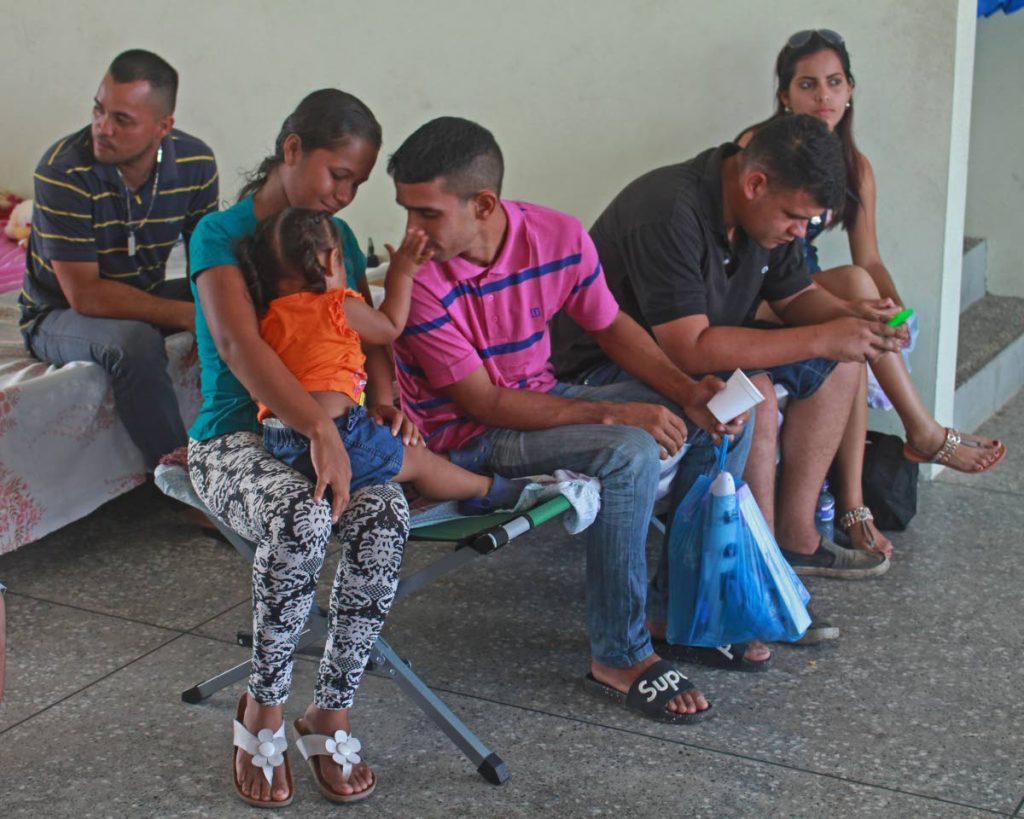Business Day Opinion: Venezuela, TT ties that bind

In 1824, Dr Johann Seigert created Angostura bitters, named after a tiny town in Venezuela. In 1875, he moved with his family to Trinidad, bringing along the concoction that would be known the world over, with its famous oversized label proudly proclaiming “made in TT.”
Crix, a “vital supply” found in the cupboards of nearly every Trinidadian and Tobagonian home, was created by the Bermudez brothers who emigrated to Trinidad in the early 20th century from, you guessed it, Venezuela.
It’s astounding then, the level blatant xenophobia directed at Venezuelan immigrants, most of whom are fleeing political uncertainty in a country suffering a near total collapse of the economy. Underlying the vitriol is an ignorance, either by choice or circumstance, of the rich and complex relationship between TT and Venezuela.
Links between the two countries go back centuries. Venezuela is Trinidad’s closest neighbour, separated by just 11 kilometres of sea. The first peoples of the Caribbean travelled up the islands from the Orinoco delta. Even our hydrocarbon reserves are extensions of the same geological system that gives Venezuela the world’s biggest oil reserves.
As colonies of Spain, Trinidad and Venezuela were part of the Viceroyalty of New Granada in the 1700s until Trinidad was captured by the British in 1797. A change in colonial oversight did little to dampen the relationship when, as the Venezuelan War of Independence raged on the mainland, an influx of emigrants, skilled in agriculture and commerce laid the foundation for the country’s vibrant cocoa industry that flourished in the 19th century.
Connections have diminished in the ensuing decades, notably because of the language barrier but still remain strong, including long standing maritime border agreements and visa-free travel between countries.
Politicians have been most complicit in stoking fear and uncertainty for a pseudo-nationalist agenda. Among the unsubstantiated claims from the Opposition have been that migrants have caused an undue burden on public services, an increase in crime, risks to public health and erosion of social values. The Government, on the other hand, had for a long time adopted the “ostrich” approach, ignoring the problem as if not acknowledging the crisis in Venezuela would somehow not make it real. There are woefully inadequate public policies directed at processing refugees, as many migrants have claimed to be, or protecting Venezuelans from being exploited either by mercenary employers, human and sex traffickers.
The Government has, to its credit, finally initiated a migrant registration process, which will begin tomorrow. It will offer a two-week amnesty for all Venezuelans in TT, here legally and illegally, to register with the government to regularise their status and, for qualifying adults, access a work permit for an initial six months with the option to have it renewed for an additional six months.
The registration will also allow the government to take an official headcount of the number of Venezuelans in the country. The unofficial figure is 40,000, based on a UN estimate a few years old. Even if it is, that puts the Venezuelan migrant population at about three per cent of the TT population, the highest per-capita figure for all places grappling with an influx of Venezuelans. The UN reports that the political upheaval in Venezuela is Latin America’s worst refugee crisis and the worst in the world after Syria, with estimates of three million people fleeing the country in the last few years – ten per cent of the population.
The Central Bank estimates it will cost the country $620 million to deal with the migrant crisis, a figure only emphasised by the Government’s adamant, inexplicable decision not to accept foreign aid to deal with the crisis.
There is opportunity, though. An OECD study on immigration and economic growth suggests that in most countries there are no negative impacts from immigration on native employment. Immigration also boosts economic growth by increasing the number of people employed, and consequently, boosting output. Then there’s the transfer of skills. Venezuela has a highly skilled professional class, including doctors, lawyers, engineers and petroleum experts. For TT, a country that suffers perpetual “brain drains” a “brain gain” will be welcome.
People don’t choose to be refugees. Home is a place of comfort and often, only dire circumstances will force someone to leave. Venezuelan migrants are not here to take anything from TT. They want what we all want – safety, security and a better life for their children.


Comments
"Business Day Opinion: Venezuela, TT ties that bind"